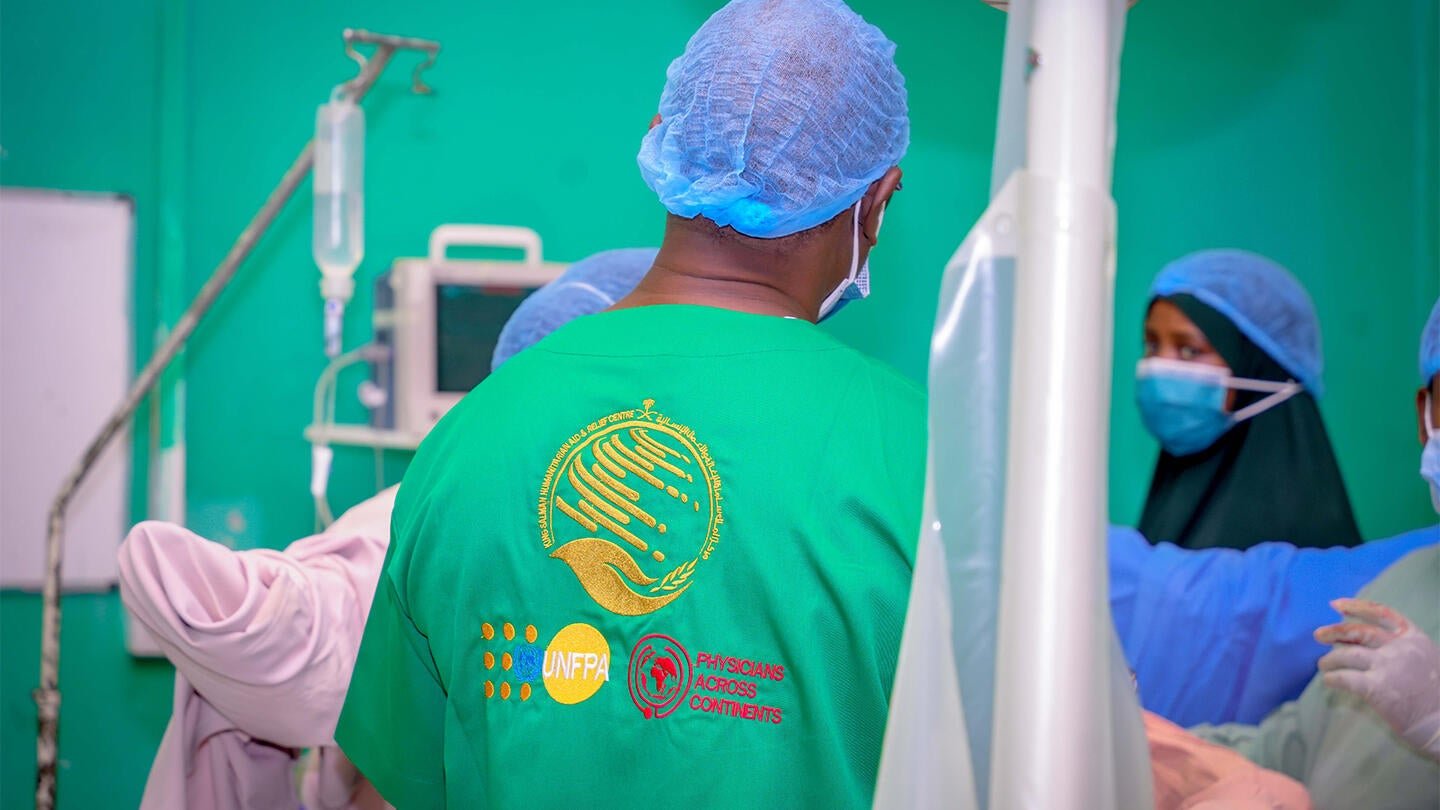Somalia is currently facing multiple, prolonged humanitarian and climatic crises. These challenges have contributed to an estimated 13,337 obstetric fistula survivors, placing Somalia among the countries with the highest number of fistula cases. Obstetric fistula is a severe childbirth injury resulting in a hole between the birth canal and bladder or rectum, causing incontinence in women and girls.
Female genital mutilation and early marriage are prevalent in the country. Additionally, limited access to quality maternal and newborn care, including skilled midwives and healthcare facilities, increases the risk of maternal mortality and morbidities such as obstetric fistula. Few women seek care for pregnancy-related complications or deliver in facilities, further elevating the risk.
With the support of generous funding of King Salman Humanitarian Aid and Relief Center (KSrelief), UNFPA and the government of Somalia have conducted the 11th national Obstetric Fistula Campaign in the national obstetric fistula center in Daynile, Mogadishu Somalia. The team of surgeons was led by a renowned gynaecologist Dr Salah, from Sudan, who have successfully undertaken the obstetric fistula surgeries and restored hope to this 60 survivors of obstetric fistulas.
“I cannot imagine I am clean and dry, I feel like I am reborn, I can now attend family gatherings including funerals which I have not attended for the last 7 yrs” Said Lul Ibrahim, a 35 years old fistula survivor from Bosaso, Puntland, Somalia.
I am very happy today after the surgery, and more so after staying a few days without leaking urine and feces. I am hopeful that this nice, new feeling will continue and that I will go back to my old life, said 17 year old Fatima, who experienced challenging childbirth with the traditional birth attendants (TBA) during her labor, in lower shabelle, Somalia.
Obstetric fistula can be prevented by ensuring women have access to quality and timely healthcare. Three cost-effective solutions can prevent fistula: timely access to high-quality emergency obstetric and newborn care, skilled health professionals during childbirth, and universal access to modern contraception. Moreover, health systems should prioritize tracking prevalence, addressing gaps in care, and ensuring universal access to a competent and motivated health workforce. National health plans must also address gender discrimination and other factors that render women and girls vulnerable to maternal mortality and morbidity
With the support of King Salman Humanitarian Aid and Relief Center (KSrelief) and other donors, we can create a future where every woman and girl in Somalia receives the care and support they need during childbirth, and where obstetric fistula becomes a thing of the past.


